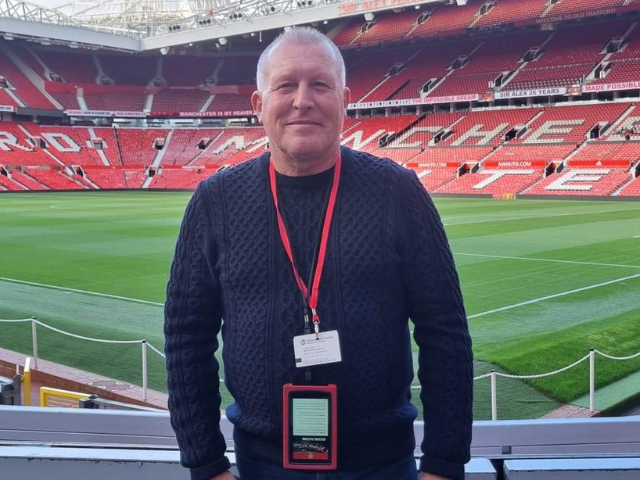
“We need research to learn for the future” – how lived experiences shape studies
This Volunteers' Week (1-7 June) we’re celebrating the people across Wales who are using their time to help researchers find better treatments and care.
The thoughts and ideas of those who have experienced a disease or programme of care is essential to the development of research. Having their input into study design ensures research is relevant to the public’s needs and concerns.
After becoming seriously ill with COVID-19, 61-year-old Craig Greenstock from Pontypridd is giving up his time to help develop research which aims to support those who experience trauma following a stay in intensive care.
The impact of COVID-19
In December 2020, Craig came home from his work within NHS Finance with a cough and a positive COVID-19 test, unaware of the impact the disease would soon have on his life.
Craig said: “My breathing completely deteriorated, I was vomiting, and my temperature was through the roof. I was admitted onto a six-bed unit and I was the only one to come out of that, which is so scary.
“On Boxing Day, my doctors put me into a medically induced coma. They said if you don’t do this your heart’s going to give out. Because of COVID, my wife couldn’t see me. It was horrendous for her.”
After a two and a half week stay in intensive care, Craig experienced post-intensive care syndrome (PICS), which can cause symptoms such as anxiety, post-traumatic stress disorder (PTSD) and difficulty moving.
Craig continued: “When I came out, I had PTSD and night terrors. I thought I died once, that I was lying on black foam, everything was pitch black and a song was playing saying ‘you’re dead, he’s dead.’
“I thought I was driving lorries, driving planes. I didn’t know what was real and what wasn’t, for some of it I still don’t know.”
Making a difference through research
Following this experience, Craig wanted “to give something back” and decided to help researchers develop a study looking to use virtual reality (VR) headsets to support patients experiencing PICS in their recovery and rehabilitation.
To support the study team, Craig is taking part in structured interviews and focus groups with other patients as well as testing the immersive VR app.
Craig, who worked in the NHS for over 40 years, said: “When it comes to patient documents, it's about getting that happy medium so that people can understand it. I want to help contribute if there is any learning that can come out of my experience. I’m working with the research team and supporting them so that they can take this forward.
“A virus like COVID-19 doesn’t discriminate and anyone can experience PICS, so we need research to learn for the future.”
The study, led by Dr Ceri Lynch who received funding from Health and Care Research Wales’ Research for Patient and Public Benefit Scheme, is taking place in the Royal Glamorgan Hospital in Llantrisant, Rhondda Cynon Taf.
Opportunities to help with research
If you’re interested in helping researchers to develop their studies find out more about our public opportunities by joining our Involvement Community or signing up to our newsletter.